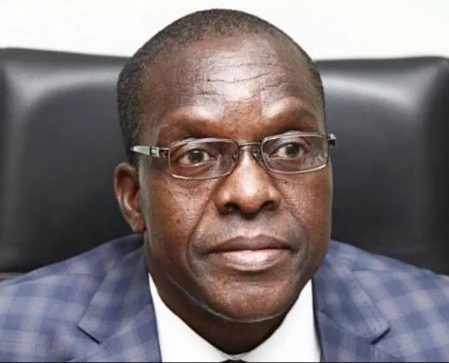
Mr Alban Bagbin, has stressed the need for Ghana to change from the ‘winner-takes- all’ system of governance to the proportional representation system.
According to him, the ‘winner- takes-all’ system of governance has not served a good purpose for the nation and so there is the need to consider alternative systems of governance such as the proportional representation.
“It’s a kind of system that will be better than the ‘winner-takes-all’,” he said at a roundtable discussion in Accra last Monday.
Proportional representation (PR) is a principle applied to voting systems in which the number of seats won by a party or group of candidates is proportionate to the number of votes received. For example, under a PR voting system, if 30% of voters support a particular party then roughly 30% of seats will be won by that party.
Under PR systems, smaller parties are allocated seats in proportion to their share of the vote and are thus more likely to secure a certain level of representation,
Single-winner systems tends to promote strong two-party competition as in the United States, although scenarios involving three major parties also exist as in Canada or the UK at a time. Single-winner systems make it relatively difficult for smaller parties to secure parliamentary representation
Purpose of discussion
The roundtable discussion was organised by the Institute of Economic Affairs (IEA) in collaboration with The Netherlands Institute of Multiparty Democracy and the Global Leaders Forum (GLF).
A delegation from the GLF, including a former President of Botswana, Mr Ketumile Masire; a former President of Switzerland, Mr Kasper Villiger; the Co-director of the Oxford Institute of Global Economic Development, Prof. Paul Collier, and a former Zambian Minister of Finance, Dr Situmbeko Musokotwane, participated in the discussion.
It was on the topic: “Making Ghana’s natural resources count” and formed part of an initiative by the IEA to engage key stakeholders in discussing critical issues of national concern.
Politics
Mr Babgin said the country’s hybrid system of governance was not well- defined, and for that matter, some institutions of government, especially Parliament, were often undermined.
He said, “Parliament is now in the belly of the Executive”, pointing out that there was the need to strengthen the Legislature to enable it to discharge its functions more effectively.
Mr Bagbin said many Ghanaians had a narrow understanding of democracy, which they interpreted in Akan as ‘kabi ma me nkabi’, to wit, ‘Let’s put across ideas’.
He added that the inherent problem in such mentality was that any suggestion that came from one side of the political divide was often rejected by the other side without considering the merits therein.
Proportional Representation system is used by more nations than the single winner system, and it dominates Europe, including Germany, most of northern and eastern Europe, and is used for European Parliament elections (as enforced by EU law). France adopted PR at the end of World War II, but discarded it in 1958. In 1986 it was used for parliament elections.
Consensus building
Prof. Collier said it was difficult to build consensus in a multiparty democracy where the ‘winner-takes- all’ system of governance operated, unlike in a coalition government.
The MP for Sekondi, Papa Owusu-Ankomah, said even under the prevailing ‘winner- takes-all’ system of governance, it was possible to build consensus in Parliament.
He indicated that Ghanaians seemed to have an “Esau mentality”, by which they sought gratification now without considering its ramifications for the future.
He expressed the hope that “we’ll try to do things better”. The MP for Keta, Mr Richard Quarshigah, wondered whether consensus-building was possible under the circumstances because “we don’t seem to walk the talk”.
He cited the recent National Economic Forum held at Senchi, saying that although some MPs of the New Patriotic Party (NPP) had mooted the idea in Parliament, the opposition party boycotted the event.